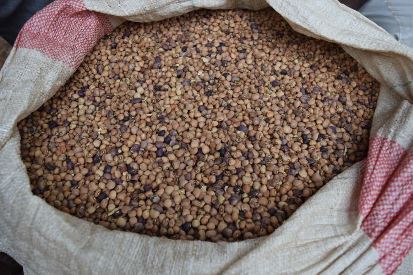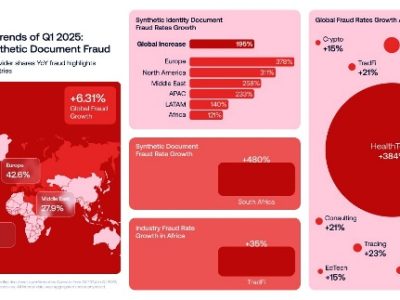The Feed the Future Innovation Lab for Legume Systems Research led by Michigan State University has received a five-year funding extension which will also extend the program to into new geographic regions. The program which currently works in West and Southern Africa will expand into the Great Lakes/East Africa and Central America/Caribbean regions. Cowpea and common bean are the Legume Systems Innovation Lab focus crops.
RELATED: Curacel secures $3m seed funding to power new insurance experiences and expand into North Africa
Legumes are a nutrient-dense staple crop that have multifunctional roles in smallholder farm systems in developing countries including food and nutrition security, generating income, providing livestock feed and fodder, contributing to the sustainability of soil systems through their nitrogen-fixing capabilities, and aid to mitigate the impacts of climate change as low greenhouse gas emitting crops.
During the five-year extended period of performance, the Legume Systems Innovation Lab will pursue four key focus crop objectives which include 1) best agronomic practices and services, 2) inclusive inputs and market systems, 3) targeted varietal scaling and development, and 4) climate change adaptation and mitigation.
The Legume Systems Innovation Lab, which uses a unique systems approach, will implement Regional Stakeholder Convenings (RSC) to identify gaps in the current legume systems to drive new activities. “The RSCs will bring together legume stakeholders to determine how efficiently and effectively the existing systems deliver food security for smallholder farmers and commercial products to consumers in a specific region,” shares Barry Pittendrigh, Legume Systems Innovation Lab Program Director. “This approach will help us to identify new focus areas to lead innovative interventions and fill the gaps. This may extend or expand the work of previous projects or in some cases be new interventions.”
These interventions could include new technologies, scaling of existing technologies, data to drive decision making, or knowledge products for significant impact. Pittendrigh describes these activities as, “research for development.”
To assist the Lab, a Technical Leadership Team (TLT) will be formed to represent four key system functions of the program which include 1) seed systems and varietal development, 2) value chains and system integration, 3) climate change and resilience, and 4) gender, equity, and social inclusion. The TLT will serve as advisors in their area of expertise to help guide activities and led support to projects.
To ensure scaling, a core strategy of the program’s market systems approach will be the integration of multi-stakeholder platforms (MSPs). MSPs provide “spaces” for learning and knowledge exchange where various stakeholders come together to diagnose their challenges and identify opportunities to address them that are mutually benefiting. MSPs have been used extensively and successfully in more developed economies to create networks among actors in value chains. These take the form of commissions, associations, councils, and confederations, among other labels intended to identify them as coalition building efforts. They are inclusive in the way that they bring stakeholders together, sometimes narrowing their focus to represent sub-groups of value chain actors. In emerging economies, where institutionalism is less developed, such coalitions are often informal or absent.
“Every project within our program will integrate an MSP approach to ensure efforts are well interwoven into the demand driven value chain for immediate uptake into systems that are focused on inclusivity, effectiveness, and efficiency,” explains Legume Systems Innovation Lab Deputy Director John Medendorp. “MSPs are a cornerstone of the Lab’s legume system transformation strategy.”
Stakeholder engagement will then take place through the MSPs, both at the regional level and at the local/project level. As part of the stakeholder engagement, the Lab will especially engage the non-governmental organizations, commercial sectors, and the international donor community through the platforms but also through the Legume Industry Consultative Committee (LINCC), an advisory board of private sector partners that view international actors as potential collaborators.
Anticipated key results of the extended work include inclusive and sustainable agriculture-led economic growth, strengthened resilience among people and systems, and a well-nourished population, especially among women and children.
Also, cross-cutting intermediate result goals and objectives for the Legume Systems Innovation Lab include improved climate risk and other natural resource management, gender equality and female empowerment, increased youth empowerment and livelihoods, more effective governance, policy and institutions, and improved human, organizational and system performance.
Highlights of the first five years of the Legume Systems Innovation Lab include 32 technologies developed, 63 individuals granted higher education degrees, and over 6,200 educated through short-term trainings. The Lab engaged in 30 research and development projects in 13 countries involving over 100 researchers from 51 institutional partners. Gender data indicates 42% of those engaged in Legume Systems Innovation Lab activities were women.
The Feed the Future Innovation Lab for Legume Systems Research is funded through Feed the Future, the U.S. Government’s global hunger and food security initiative led by the United States Agency for International Development (USAID). The Legume Systems Innovation Lab was awarded to Michigan State University in 2018, the extended performance period will continue the work of the Lab through August 2028 with an anticipated total funding of up to $35 million.
Michigan State University has a long history of investments in global legume research and development spanning over 40 years.
For more information on the Legume Systems Innovation Lab, visit: https://www.canr.msu.edu/legumelab/





























